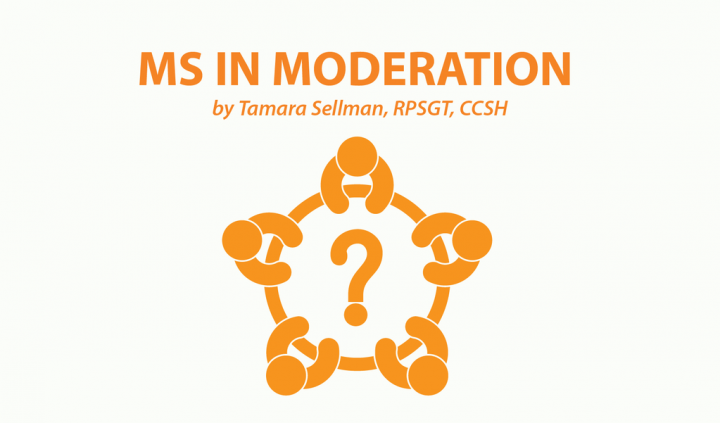Need to Know: What Is the Blood Brain Barrier?
Written by |

Editor’s note: “Need to Know” is a series inspired by common forum questions and comments from readers. Have a comment or question about MS? Visit our forum. This week’s question is inspired by the forum topic “How the Blood Brain Barrier May Thwart MS Progression” from Feb. 9, 2017.
What is the blood-brain barrier?
The blood brain barrier (BBB) is a highly dense network of cells that form a protective capillary barrier, separating brain tissue and cells from blood vessels.
The BBB prevents specific kinds of substances from entering the brain, namely pathogens, toxins, and plasma components, which could be damaging to the central nervous system (CNS).
At the same time, the BBB is very discriminating in what it will allow into the CNS. Only very specific blood components that are friendly and in service to the brain — such as hormones, water, oxygen, glucose (blood sugar), and vital nutrients — are permitted.
MS researchers care about the serviceability of the BBB because, when it’s defective, breaches occur that allow damaging substances to infiltrate the brain, leading to disease activity.
Mechanisms
The capillaries that make up the BBB are similar to other blood vessels, composed of specific kinds of cells known as endothelial cells.
In other parts of the body, endothelial cells are somewhat porous, allowing substances to move through their membranes as required for proper function.
In the BBB, however, this capillary network is tightly constructed, only allowing for the passage of very small or specific kinds of molecules that serve the brain’s needs. This exchange is strictly regulated by special cells known as glial cells.
In the case of MS, the BBB experiences a breach by immune system cells (such as lymphocytes, or T-cells), which the glial cells cannot contain.
Situations that can lead to damage to the BBB include inflammation, disease activity, drug use, pollutants and toxins, smoking, or chronic oxidative stress.
Some specialists believe there’s also a possible connection between the health of the BBB and the health of the gut (the microbiome).
Medications
According to Multiple Sclerosis Trust, some of the disease-modifying therapies currently used to treat MS act directly on the BBB. For instance:
- Tysabri (natalizumab) acts by preventing invasive immune cells from passing through the BBB into the brain, where they can damage and destroy brain tissues.
- Gilenya (fingolimod) works by fortifying the BBB against invaders and by trapping invasive immune cells in adjacent lymph glands so they cannot enter the CNS.
Research
Recent research shows an increasingly sophisticated understanding of MS triggers and potential solutions.
- Nature Neuroscience published evidence in April 2019 that identifies how cells responsible for producing myelin (known as oligodendrocyte precursor cells, or OPCs) are unable to move into areas of damage beyond the BBB in order to repair them. Instead, they get stuck outside the BBB, which sends a false signal to the immune system to respond. This leads to inflammatory markers now known to characterize early stages of MS.
- Professor Katerina Akassoglou received the Barancik Prize for Innovation in MS Research earlier this year for her work in understanding the role of fibrin in breaching the BBB. Fibrin is a blood-clotting protein that is not meant to enter the CNS; however, when the BBB is damaged, fibrin can “leak” in and deposit itself on damaged nerve cells. Its presence may prevent the brain from performing self-remyelination; it also activates microglia cell activity, which incites a damaging inflammatory response. Akassoglou’s work was honored because it introduces fibrin-inhibiting antibodies as a means for deactivating microglial cell activity, resulting in reduced CNS damage.
- Future use of specific molecules drawn from the immune systems of parasitic sea lamprey (which have been found to deliver cancer drugs directly to brain tumors) may have a future in targeted therapies for treating severe demyelination activity in people with MS.
- Estrogen may also have a future as a remyelination-boosting therapy targeting the management of cholesterol in CNS tissues. Cholesterol is important to the health of all cells. The brain generates its own supply because stores of cholesterol in the bloodstream cannot pass the BBB. It turns out that estrogen — considered an anti-inflammatory substance — is necessary for building CNS cholesterol, and plays an important role in remyelination.
Do you have questions about how the biology of the brain intersects with MS disease activity? Post your questions, replies, or thoughts in the comments below or at the original “How the Blood Brain Barrier May Thwart MS Progression” forum entry.
***
Note: Multiple Sclerosis News Today is strictly a news and information website about the disease. It does not provide medical advice, diagnosis, or treatment. This content is not intended to be a substitute for professional medical advice, diagnosis, or treatment. Always seek the advice of your physician or other qualified health provider with any questions you may have regarding a medical condition. Never disregard professional medical advice or delay in seeking it because of something you have read on this website. The opinions expressed in this column are not those of Multiple Sclerosis News Today or its parent company, Bionews Services, and are intended to spark discussion about issues pertaining to multiple sclerosis.



C Chamberlain
Thank you for this article. It is well written and informatory for us non scientists.
Tamara Sellman
Thanks for the feedback! I do what I can <3 Tamara
Anton McInerney
Thank you a relief from poorly written articles. It seems likely that creating a universal translation gene for these critical mind function and body correspondence will quickly upgrade our abilities to gauge all devolvement and related effects on any creature to our best survival advantage as a race. A master gene that translates all damaging elements into normal advantageous cell conformation.